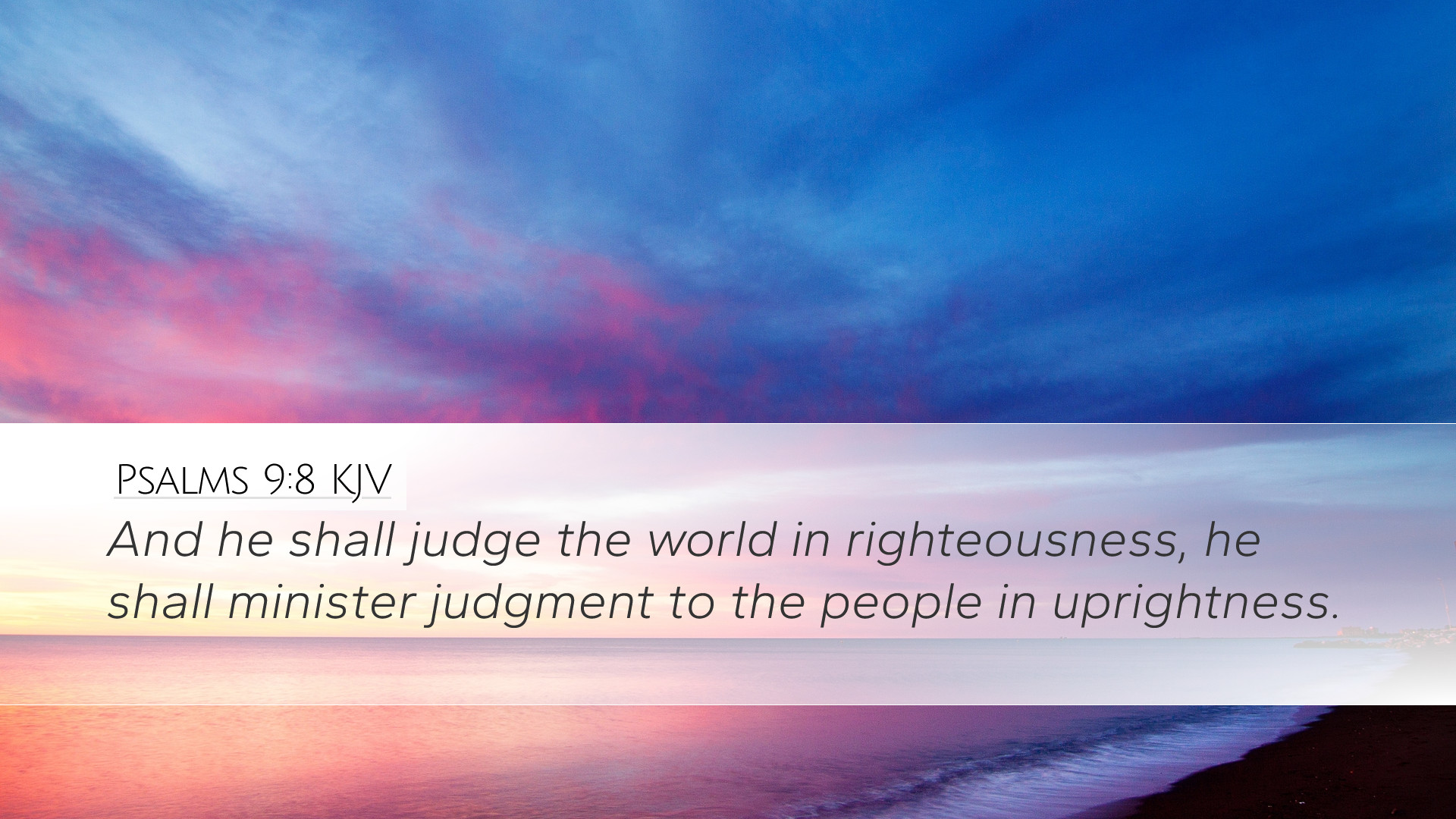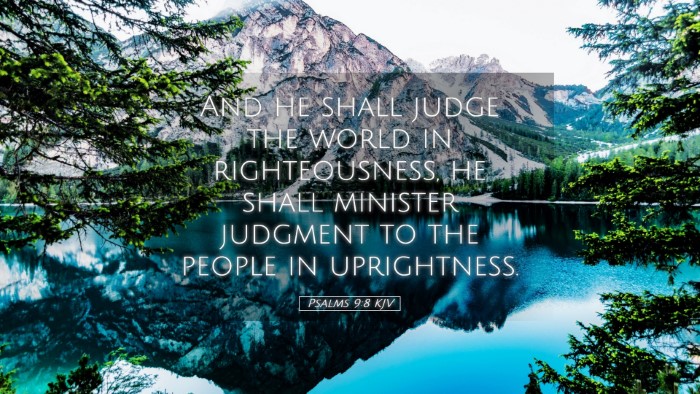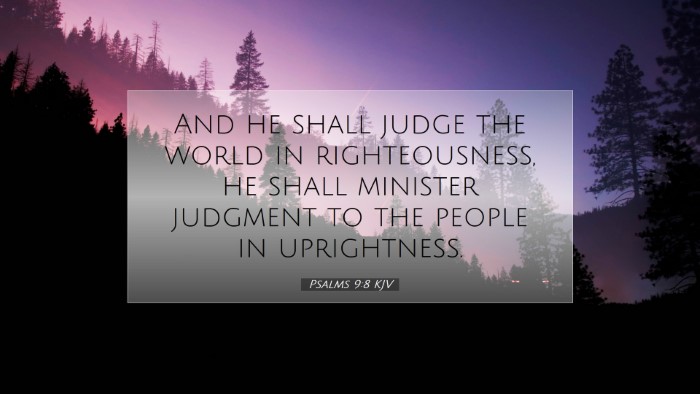Commentary on Psalms 9:8
Bible Verse: Psalms 9:8 - "And he shall judge the world in righteousness, he shall minister judgment to the people in uprightness."
Introduction
The verse from Psalms 9:8 speaks powerfully to the prospects of divine justice and the righteousness with which God governs the affairs of humanity. This commentary amalgamates insights from several public domain sources such as Matthew Henry, Albert Barnes, and Adam Clarke to provide a comprehensive exploration of this profound scripture.
Contextual Overview
This psalm, attributed to David, is a hymn of praise and reflection on God’s justice and mercy. It addresses the theme of God as a righteous judge who intervenes in the earthly realm to establish order and justice. By interpreting this verse, we can explore God’s character and His governance over the world.
The Nature of Divine Judgment
Matthew Henry emphasizes that God’s judgment is characterized by righteousness. He notes that God's judgment is not arbitrary; rather, it is grounded in fairness and morality. Henry posits that God, as the righteous judge, ensures that justice prevails and that every action will face a rightful assessment.
The Scope of God's Judgment
Albert Barnes further elaborates on the scope of God’s judgment, explaining that it encompasses "the world" and not just the nation of Israel or specific individuals. This universal aspect highlights the sovereignty of God over all nations and peoples, reinforcing the idea that all humanity is accountable to divine authority.
Understanding Righteousness
Adam Clarke provides a deeper exploration into the term “righteousness.” He articulates that God’s righteousness is not merely a passive attribute but an active force that seeks to restore and reconcile. Clarke emphasizes that God’s judgments are intended to rectify wrongs, thus showcasing His commitment to justice.
The Role of Humanity in Judgment
Psalms 9:8 also implies the responsibility of humanity in reflecting God's righteousness. Each person, bearing the image of God, is urged to pursue justice and integrity. As Henry points out, believers are called to align their actions with God's righteous standards, thus enacting His will on earth.
Theological Implications
In light of this psalm, significant theological implications arise concerning the nature of God and His relationship with humanity. The righteous judgment encapsulated in Psalms 9:8 serves as both a comfort and a challenge to believers. It assures them that no injustice escapes God’s notice, while simultaneously exhorting them to live justly.
Implications for Pastoral Care and Teaching
Barnes’ observations on divine justice provide important considerations for pastoral application. Pastors can emphasize that the character of God as a righteous judge invites congregants to find hope amid suffering and injustice. Moreover, teaching on this verse can encourage believers to actively engage in justice-seeking behaviors within their communities.
Practical Applications
The verse from Psalms 9:8 encourages several practical applications for today’s believers:
- Trust in God's Justice: Believers are reminded to place their trust in God’s perfect judgment rather than relying solely on human systems of justice.
- Pursuit of Righteousness: Individuals are called to mirror God’s character by living righteously and advocating for justice in their spheres of influence.
- Hope in Times of Injustice: The assurance of God’s righteous judgment provides hope to those who suffer injustice, reinforcing that all will be set right in God’s perfect timing.
Conclusion
Psalms 9:8 serves as a profound declaration of God’s commitment to righteousness and justice. Through the combined insights of Matthew Henry, Albert Barnes, and Adam Clarke, we gain a richer understanding of this verse’s implications for individual believers, communities, and the global context. As we reflect on God’s righteous judgment, let us commit to living in a manner that honors His character and stands for divine justice.


